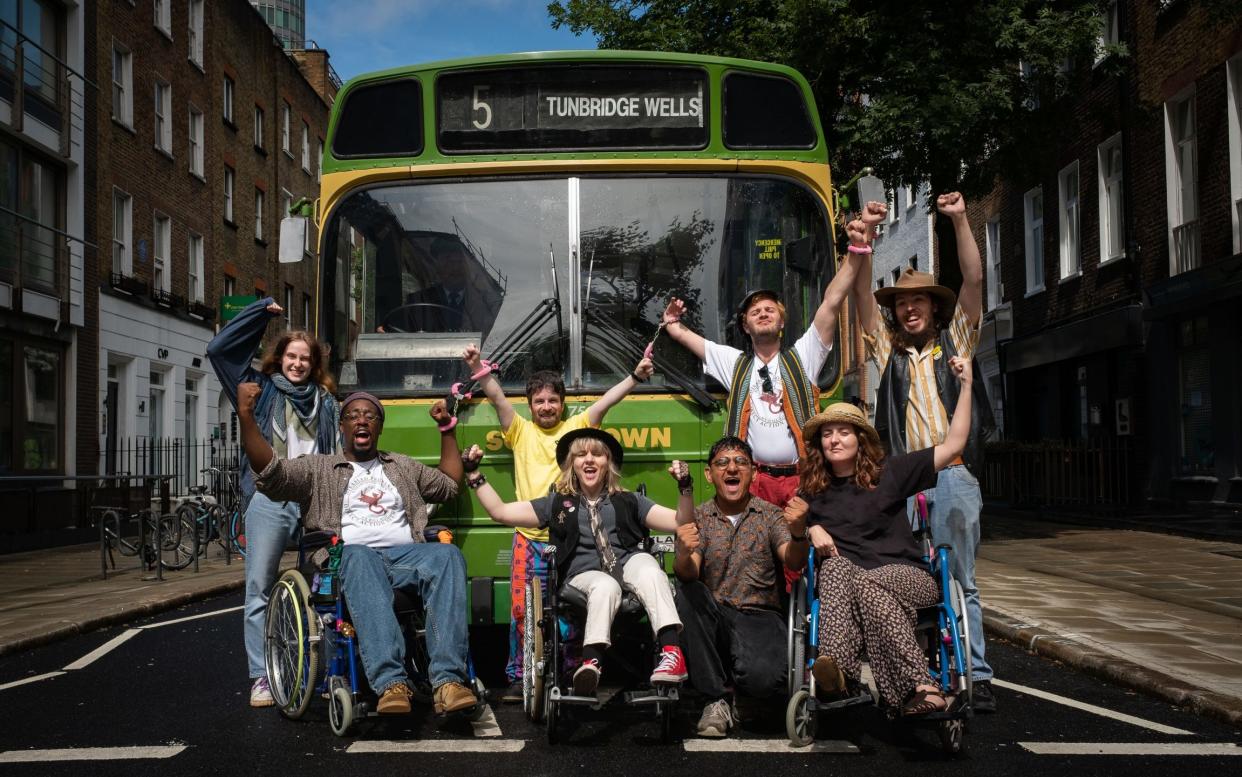Then Barbara Met Alan, review: a joyously defiant story of how disabled people rejected pity

- Oops!Something went wrong.Please try again later.
- Oops!Something went wrong.Please try again later.
- Oops!Something went wrong.Please try again later.
- Oops!Something went wrong.Please try again later.
There was a scrappy, unconventional quality to Then Barbara Met Alan (BBC Two), Jack Thorne and Genevieve Barr’s true story of the disability rights activists Barbara Lisicki and Alan Holdsworth. At first, this seemed to work against it, not helped by the mere 70-minute running time.
But as the story went on, the decision to film it like this – wobbly cameras, sketchy narrative, breaking the fourth wall – made sense. The Direct Action Network, which Lisicki and Holdsworth founded to campaign for the rights of disabled people, had an anarchic energy all of its own. One of its slogans was “P--s on Pity”.
You may dimly remember the group handcuffing themselves to Tube trains, blockading the doors of Harrods, or disrupting ITV Telethon in the early 1990s. The drama incorporated real-life footage which included a protester invading the ITV studio where Claire Rayner was manning the phones. “Oh dear, we’ve got some cross people,” said Rayner helplessly.
Ruth Madeley was in spirited form as the straight-talking Lisicki, a force of nature infuriated by society’s attitude to “crips”. The Telethon may have seemed like a nice idea to most viewers at home – raising money for disabled charities – but to Lisicki and her friends it was “hardcore inspiration porn”. “What’s wrong with charity?” she asked. “I’ll tell you what’s wrong. It sees us as victims who need your help. We’re not f---ing useless. It’s society that’s disabling.”
Hearing that statement made you realise how much television and film has portrayed disabled people as figures in need of rescue. The real strength of this drama wasn’t in the storytelling but in the way it depicted Lisicki and Holdsworth (Arthur Hughes) as regular lead characters. They fell in love, they had sex, they argued, they split up – this was disability as you rarely see it. Another writer might have created some difficulties for the couple when they became parents, but here we just saw Lisicki getting on with motherhood. The cast of disabled actors included Silent Witness star Liz Carr, playing herself – she was one of the original members of DAN.
Still, just over an hour felt miserly. We whipped through Barbara and Alan’s relationship, from their meeting in a cabaret club where she was doing stand-up (being in a wheelchair, she had a joke about that) and he was singing under the name Johnny Crescendo, to their eventual break-up. We hopped from protest to protest with no preamble. The ending, though, where the cast were joined by the real Lisicki and Holdsworth for a bus singalong, was a joyous thing.

